Exquisite produce, the freshest seafood, decadent cheeses, butter, and cream—and of course, some of the finest wine in the world…all great reasons why self-catering holidays in France are fast becoming one of the most popular holidays for foodies. And why not? If you love cooking (and shopping at the lavish farmer’s markets!), there’s nothing more soul-satisfying than preparing your own meals in a gourmet kitchen and sharing the bounty with your family and friends. If you haven’t made plans for a holiday to one of our self-catering villas in France this year then now is the time. Channel your inner Julia Child and check out these authentic regional recipes to get your culinary creative juices flowing.
1. Don’t Miss Duck in the Dordogne at Chateau Chanteuse

The Dordogne has a relaxed yet decadent food scene—and this villa is just minutes from Nerac, the birthplace of foie gras. The Saturday markets are unbelievable, perfect for finding elusive black summer truffles.
Fun fact: Did you know that black truffles can cost €500 or more per kilo depending on the size of the harvest?
The spacious kitchen is a chef’s delight; stock up on lovely Bordeaux from one of the many local wineries and try this recipe for roast Magret duck breast with Agen prunes and Armagnac, a classic dish that showcases the bounty of the Dordogne.
2. Taste the Flavours of the French Riviera at Maison Miel
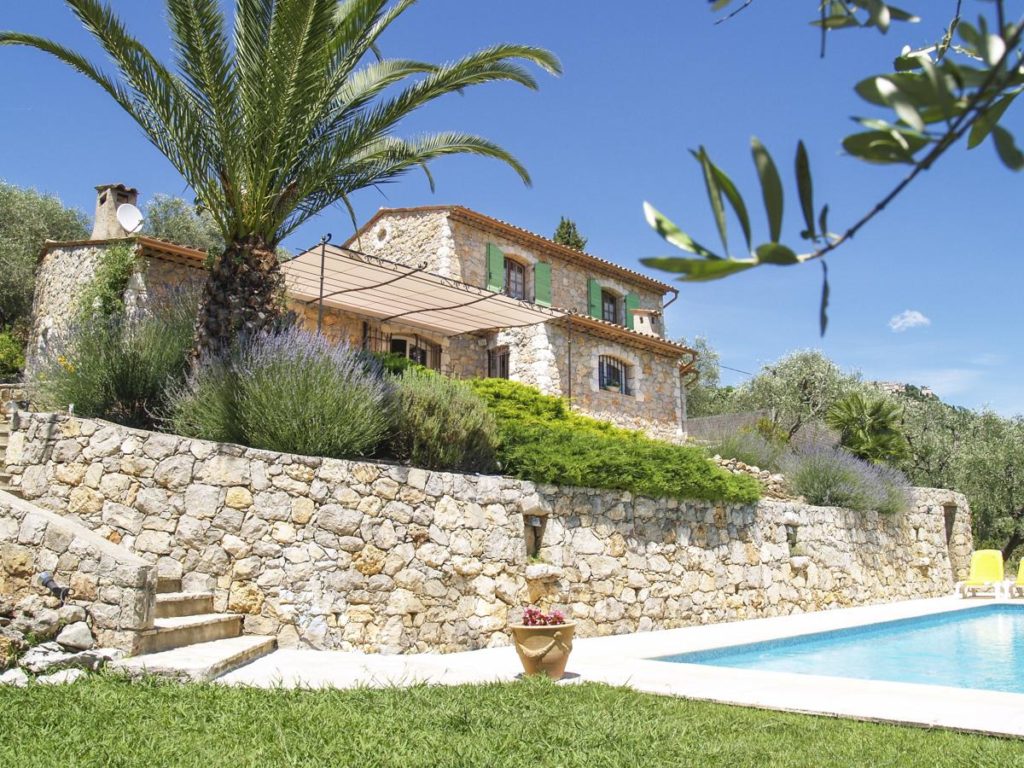
Picture yourself lounging by the pool enjoying the best of the Provençal countryside—the view will take your breath away. There’s also a lovely country-style kitchen as beautiful as it is functional with classic appliances to make meal prep a joy.
Of course, why not take advantage of the charming outdoor patio and casual dining tables and treat yourself to salade Niçoise, a dish that’s synonymous with the French Riviera? Colourful haricot verts, lovely red and yellow beetroot, fresh hard-boiled eggs, and succulent tuna make a beautiful summer salad that’s just perfect for an afternoon lunch overlooking the pool.
Pro tip: A dry Provençal rosé is the perfect pairing for a salade Niçoise.
3. Explore the Languedoc Seafood Markets near Chateau Asturias

The Catalan influence is strong in the regional dishes of the Languedoc—rich and redolent with fragrant spices. Local favourites include a hearty brandade, boeuf a la gardiane, and tender, meaty cassoulet.
But nothing compares to fresh seafood and produce at the market in Carcassonne where you’ll find everything you need for this deliciously simple soupe de poisson and saffron-flavoured rouille. Set a pot to simmer in the gorgeous country kitchen at Chateau Asturia and enjoy a bowl while you relax on a chaise in the zen-like garden—or serve it family-style on the oversized refectory table in the sun-lit dining room.
Fun fact: It takes 250,000 flowers to make a kilo of saffron powder—and just 1 gram can flavour up to 60 servings of food.
4. Make a Fabulous Loire Valley Cheese Plate to Share with Friends at Chateau les Bains

The Loire Valley is famous for its heavenly goat cheese—the long, cylindrical Ste. Maure, the pyramid-shaped Pouligny-St-Pierre, the rich discs of Selles-sur-Cher, and the tiny cylinders of delectable Crottin de Chavignol. Why not lay out a selection of cheese and whip up a batch of rustic pork rillettes for a truly indulgent taste of France? Sure, it takes a few hours, but the results are more than worth it.
You’ll enjoy every minute of your labour of love in the fantastic chef’s kitchen at Chateau les Bains – enjoy your meats and cheeses with a vintage from the chateau’s superb wine cave.
Fun fact: Did you know it’s not what a goat eats that flavours the cheese, but what it smells just before the milk is produced.
5. Impress Your Guests with Classic Provencal Bouillabaisse Made from Scratch in Your Kitchen at Maison Sebastien.
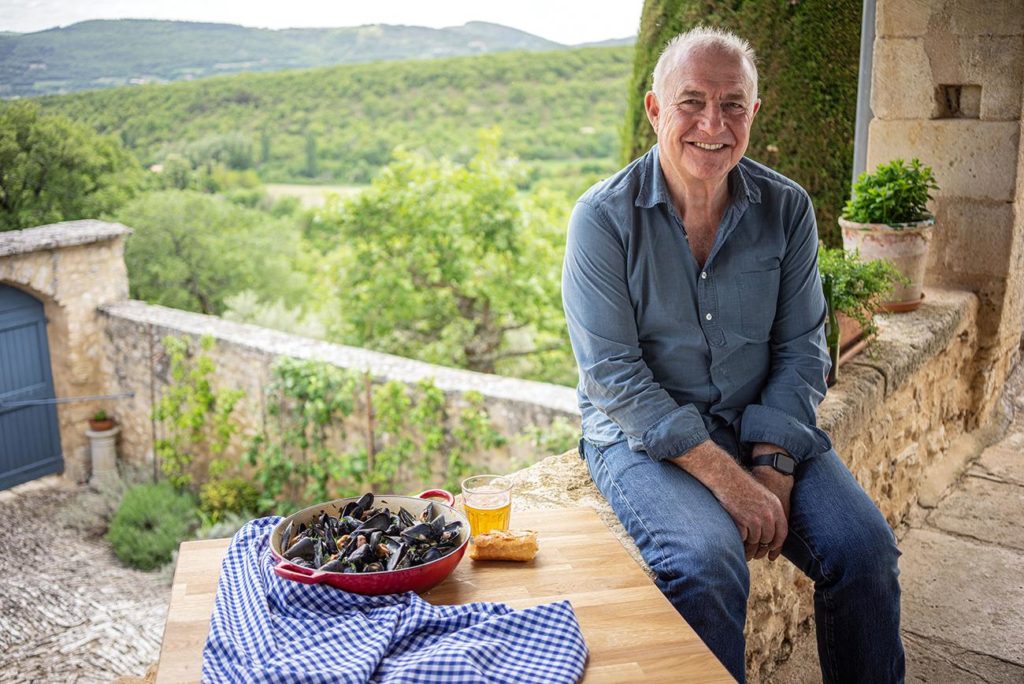
French gastronomy in the Provence-Alpes-Côte d’Azur is very distinctive from the rest of French cuisine—it’s a totally unique style of French cooking. The Mediterranean influence brings the heat with lots of spice and recipes showcasing fresh local seafood. Garlic, olive oil and olives, and the abundant “herbes de Provence” form the foundation of Provence-Alpes cuisine.
Step into the gorgeous rustic kitchen at Maison Sebastien and spend an afternoon immersed in Provencal cuisine with this classic bouillabaisse recipe — the dish takes its name from the French for “to boil down.” Enjoy it with a bottle of Bandol red al fresco on the shaded terrace overlooking the French countryside.
Did you know? Bandol’s roi cepage (or king grape) is the Mourvedre and it’s the only appellation in the world that requires its reds to be 51% or more Mourvedre. The finest are actually closer to 90% or even 95%. If you’re drinking a Bandol Red less than 6 or 7 years old, let it decant for at least a couple of hours before you serve it.
24 Large Holiday Homes and Activities for an Unforgettable Family Holiday
Provence and Côte d’Azur Travel Guide
The Best Foodie Breaks in UK
6. Get Your Calvados Fix in Normandy at the Chateau Les Douves.
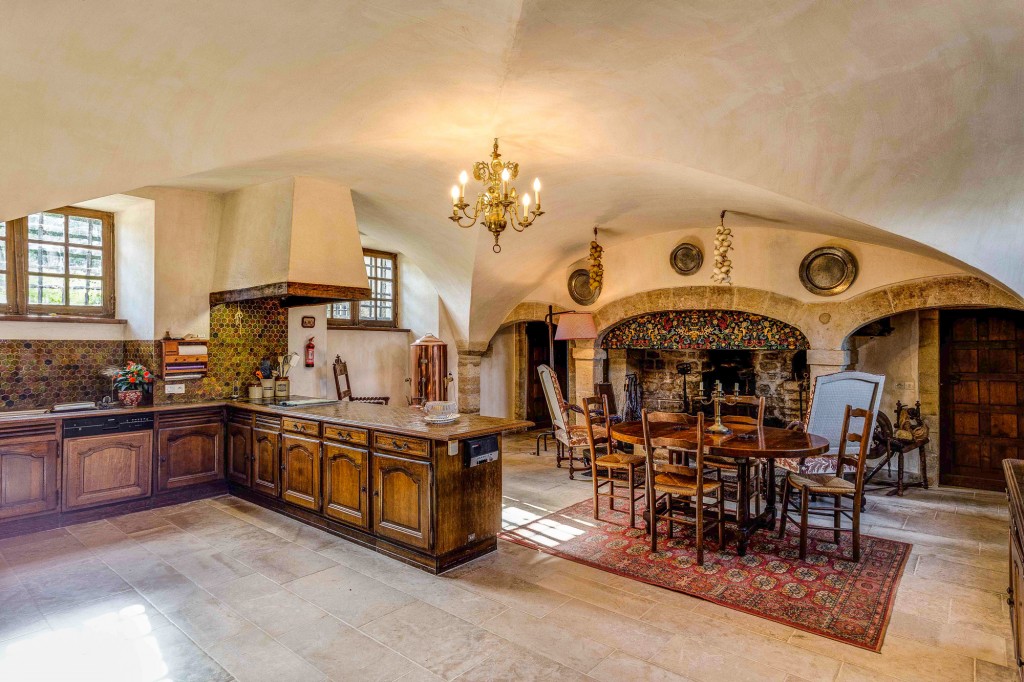
Normandy is a foodie paradise with its fabulous camembert, Neufchatel, Livarot, seafood, and ubiquitous apples—who can resist the calvados, ciders, and heady pommeau? And don’t forget Benedictine traces its history to a Venetian monk in Normandy, Dom Bernardo Vincelli.
Why not treat yourself to a humble, classically Norman dessert made in the spacious stone kitchen at Chateau Les Douves? This delicious apple omelette showcases the finest ingredients of Normandy—apples, calvados, and cream.
Fun fact: Normands love cafe calva, coffee with a shot of calvados—try it with breakfast, after lunch, or even at tea time instead of your usual cuppa.
7. Go Full Bourguignon in Your Kitchen at Le Rosseau Cottage.

If you’re a Julia Child devotee, you’ll feel right at home in the charming tiled kitchen of Le Rosseau Cottage in Burgundy. Burgundians are passionate about their wine and their food—boeuf bourguignon, escargots bourguignon, and of course, one of Julia’s signature dishes, coq au vin.
It’s perfectly acceptable to go the slow-cooker route with this iconic Burgundy dish—use the extra time to take a dip in the heated pool or play games in the barn with the kids or even just relax in courtyard garden with a glass of vin and a book. You’ll love the heady aromas as this classic dish simmers away.
Pro tip: You don’t need a pricey Burgundy to stay true to the spirit of coq au vin. Try a playful (and less expensive) Beaujolais—it comes from the same region but is made with Gamay grapes—and save your favourite hearty Burgundy for sipping.
8. Make Breton Crepes and Butter Cakes in the Kitchen at Maison Meneac

In the westernmost part of France, the bounty of Brittany awaits the adventurous chef. Open-air markets overflow with fresh seafood and langoustines, flavourful vegetables, and local eggs, milk and butter. Breton cooking is simple and straightforward—it’s all about quality ingredients and full-flavoured foods. There’s no need for complicated French sauces and techniques.
Maison Meneac’s charming country kitchen is a great place to whip up a batch of sweet or savoury crepes, a Breton staple. Or better yet, bake these utterly decadent, butter-rich kouign-amann cakes with their caramelized tops, the essence of Brittany on a plate.
Fun fact: You can find creperies on nearly every street corner in Brittany. There are two main varieties: crepes sucrées are made with wheat flour and have a sweet filling of fruit or jam and crepes salees (also called galettes) are made with buckwheat flour and filled with meats, vegetables, and cheeses—just the thing for a casual breakfast, lunch, or snack.
9. Indulge Your Inner Beefeater at The Millhouse in the Heart of Charentes.
The Charente River region is famous for Parthenaise cattle, the source of perhaps the finest beef, butter, and cream in the world. It’s also famous for cognac, perfect before and after dinner.
You could combine all of these Charentes delights into a fabulously simple bistro dinner of steak au poivre for a quintessentially French meal you’ll talk about for months. Make an outing to visit some of the local cognac distilleries that dot the countryside around this spacious 18th-century farmhouse.
Did you know? Cognac was actually “invented” by the Dutch in the 17th century when Dutch settlers needed a way to preserve and transport the wines they bought in the Cognac region of France. They initially began by distilling it, but soon discovered that the distilled wine was actually finer and more elegant than the original. A second distillation improved the “brandewijn,” or burnt wine, even more. This act of utility led to the birth of cognac.
10. Sample the Sausages of the Midi-Pyrenees in the modern kitchen at Manoir des Prairies
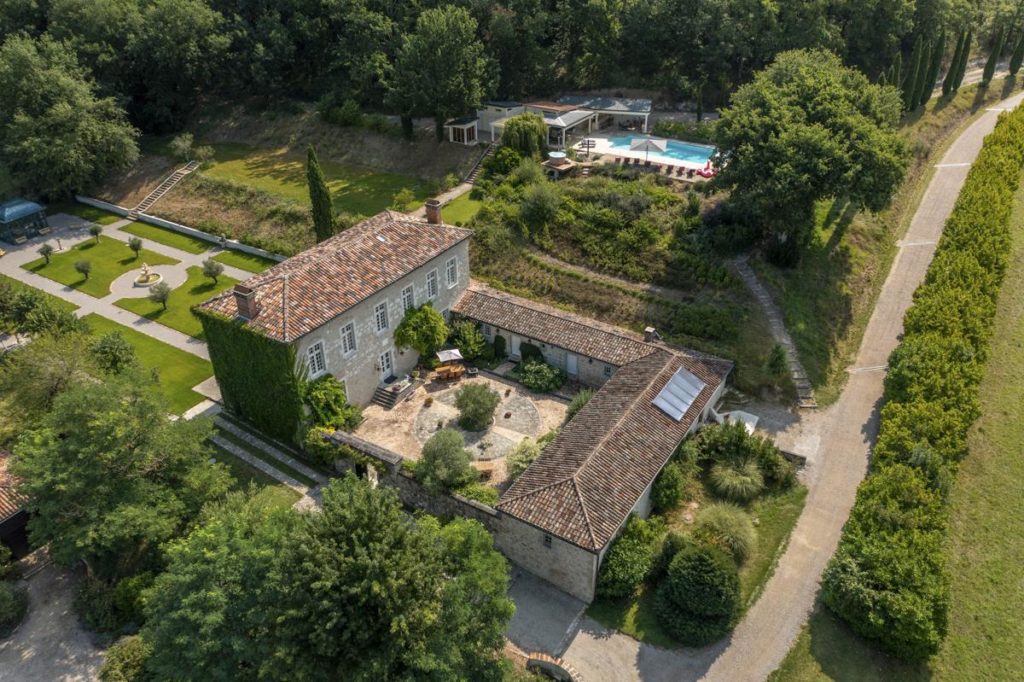
Toulouse is the place to find the exclusive red-labelled sausages that make this region famous—there’s nothing in them but the finest local pork, salt, and pepper. It’s also the place to find the prestigious Quercy lamb, the first lamb in France to secure the coveted Label Rouge.
And there’s no better use for these regional delicacies than a hearty cassoulet, the region’s signature dish. Set it to simmer in the surprisingly contemporary kitchen of Manoir des Prairies and enjoy a glass of wine in front of a roaring fireplace while the heady aromas fill the air.
Pro tip: A spicy Madiran is an excellent pairing with cassoulet, or if you prefer a lower alcohol content, an inky Cahors red will do the trick.
Ready to Tuck In?
So…there you go—10 fabulous food regions in France, 10 gorgeous self-catering villas with amazing kitchens and dining areas, and 10 regional recipes to make your mouth water. See anything you like?
Then take 10 seconds to share your thoughts in the comments below—or better yet, take two minutes to get the ball rolling for your self-catering villa holiday in France by filling in a few details here.




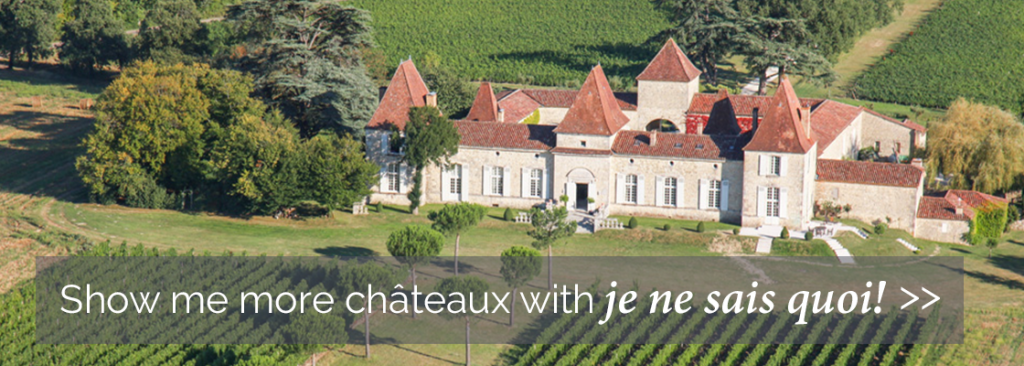

Leave a Reply